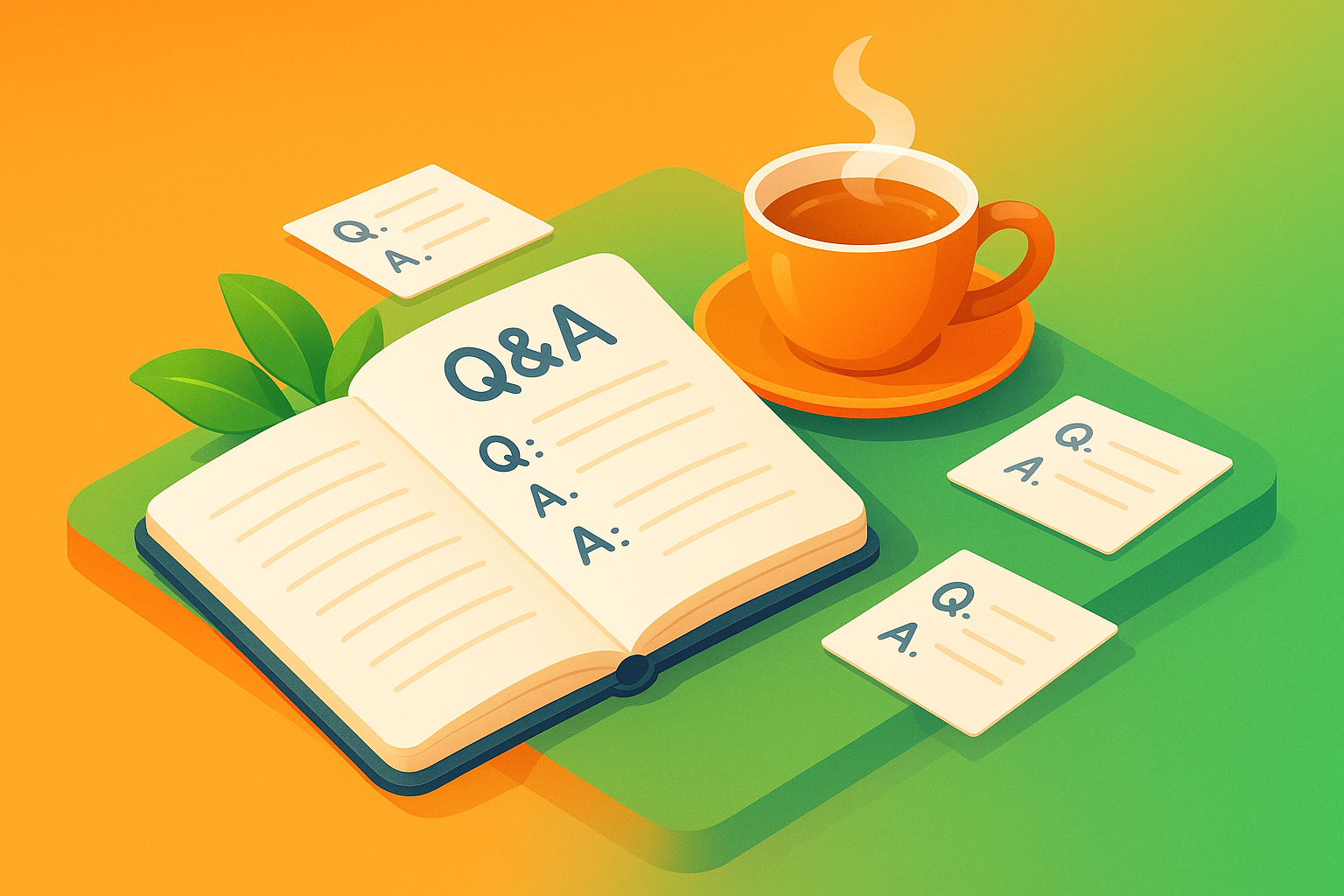Key Takeaways
- AI-driven search features now influence nearly one-fifth of UK commercial queries.
- ChatGPT handles billions of daily prompts, shaping customer buying decisions.
- UK ecommerce founders often rely on outdated SEO strategies from 2019.
- Competitors leveraging AI-powered insights are gaining an advantage in customer acquisition.
- Adapting to AI-centric SEO is essential for sustained ecommerce growth in 2025.
Table of Contents
- The UK Ecommerce SEO Landscape in 2025, What’s Changed, What’s Next?
- Why Ecommerce SEO Still Matters (More Than Ever)
- What Makes Ecommerce SEO Unique? (UK Perspective)
- Core Ecommerce SEO Services, What’s on the Menu (and What Actually Moves the Needle)?
- Technical SEO for UK Ecommerce Sites (Pitfalls, Fixes, and Futureproofing)
- Onsite SEO, Conversion-First Optimization for Product & Collection Pages
- Winning Ecommerce Keyword Research, UK Commerce Intent Decoded
- Agentic SEO & AEO/GEO, The New Rules for AI-Native Search (and What to Do Now)
- Building Content That Ranks, Answers, and Converts, UK Ecomm Edition
- Programmatic SEO for UK Retailers, Scaling Authority with Automation
Ecommerce SEO Services in the UK, The Founder’s 2025 Playbook for Always-On Growth
AI Overviews now appear in 18% of UK commercial queries, ChatGPT processes 2.5 billion prompts daily, and your customers are increasingly asking AI assistants what to buy instead of researching themselves. Yet most UK founders are still playing by 2019’s SEO rules, chasing blue links while their competitors capture AI-powered buying decisions.
The shift isn’t coming; it’s here. Ecommerce SEO services in the UK must now optimize for both Google’s traditional rankings and AI answer engines like ChatGPT, Perplexity, and Gemini. Brands that adapt to this hybrid search landscape will compound their organic growth. Those that don’t will watch their visibility evaporate, even if they’re “ranking #1.”
I’ve spent the last 18 months testing what works in this new reality with our 7 and 8-figure UK clients. Here’s your complete playbook for choosing and implementing ecommerce SEO services in the UK that actually move the needle in 2025. For more insights and updates, visit our blog.
The UK Ecommerce SEO Landscape in 2025, What’s Changed, What’s Next?
UK ecommerce grew 15% in 2024, hitting £99 billion, but the way customers discover products has fundamentally shifted. AI Overviews dominate commercial queries, mobile accounts for 73% of UK online purchases, and traditional organic click-through rates have dropped 12% as users get answers without clicking.
British brands face unique challenges: competing with Amazon’s AI-optimized product feeds, international rivals with deeper content budgets, and AI-native aggregators that synthesize product information faster than individual stores can update their pages. The brands winning aren’t just ranking, they’re being cited by AI assistants as trusted sources.
Critical Shift: UK buyers now research through AI chat interfaces 34% more than direct Google searches for product categories like home goods, electronics, and fashion accessories.
This creates massive opportunity for founders who understand the new rules. While competitors chase yesterday’s metrics, you can capture tomorrow’s traffic by optimizing for both search engines and answer engines simultaneously.
Why Ecommerce SEO Still Matters (More Than Ever)

SEO remains the ultimate compounding growth channel because it’s the only marketing investment that gets stronger over time. While UK brands watch their Facebook CPMs rise 47% year-over-year and Google Ads costs climb relentlessly, organic traffic compounds without proportional cost increases.
The misconception I hear from founders: “We’re #1 for our main keywords, so we’re set.” Wrong. Rankings without AI visibility mean your products don’t exist in the new buying journey. Customers asking “What’s the best sustainable skincare brand in the UK?” won’t see your site if ChatGPT doesn’t cite you, regardless of your Google position.
This is why we’ve developed Agentic SEO, human strategy directing AI execution at scale. Our UK clients typically see 3X organic revenue growth within 100 days because we’re optimizing for the full spectrum of search behavior, not just traditional queries. To learn more about the evolution of search engine optimization, see this overview of search engine optimization.
| Channel | UK ROAS (2024) | Trend | Compounding Effect |
|---|---|---|---|
| Facebook Ads | 2.8:1 | Declining | None |
| Google Ads | 3.2:1 | Stable | None |
| Organic SEO | 8.7:1 | Growing | High |
What Makes Ecommerce SEO Unique? (UK Perspective)
Ecommerce SEO isn’t blog SEO with products attached. It’s architecting thousands of interconnected pages, products, collections, variants, filters, into a cohesive system that serves both algorithms and buyers. UK stores face additional complexity: VAT-inclusive pricing, regional shipping variations, and local search intent patterns.
The “Topical City” approach we use clusters product pages around commercial themes, links collection pages to supporting content, and ensures faceted navigation doesn’t create duplicate content nightmares. For UK brands, this means handling regional collection pages, GBP pricing schemas, and local inventory signals without cannibalizing your main category rankings.
Technical execution matters more in ecommerce because a single crawl error can hide entire product lines from search engines. Schema markup becomes critical, product availability, review stars, local business information, and FAQ structures all influence both traditional rankings and AI citations.
Core Ecommerce SEO Services, What’s on the Menu (and What Actually Moves the Needle)?
Effective ecommerce SEO services in the UK require five integrated components: Technical SEO (site architecture and performance), Content & AEO (answer-engine optimization), Digital PR (citation building), Onsite Optimization (conversion-focused pages), and Programmatic SEO (scaled content systems).
Most agencies treat these as separate services. We orchestrate them as one system because Google and AI engines evaluate your entire digital footprint, not individual pages in isolation. A technical speed improvement amplifies your content velocity, while proper schema markup helps AI engines understand and cite your products. This interconnected approach is what separates foundational growth from quick fixes. For a deeper dive into our methodology and industry updates, check out our main site.
For UK ecommerce sites, technical SEO carries unique challenges that most agencies miss. VAT-inclusive pricing creates duplicate content issues when the same product displays different prices for B2B versus B2C customers. Collection pages with faceted navigation generate thousands of crawlable URLs that dilute ranking signals. Mobile performance suffers under the weight of high-resolution product imagery and complex mega-menus designed for desktop shoppers.
The most critical technical foundation is site architecture that supports both user journeys and crawler efficiency. UK brands often struggle with regional collection pages, creating separate URLs for “trainers” versus “sneakers” or handling Scottish delivery variations. These decisions compound over time, either building topical authority or fragmenting it across competing pages.
Core Web Vitals remain non-negotiable for UK mobile commerce, where 73% of purchases now happen on mobile devices. A one-second delay in load time reduces conversions by 7%, but most UK Shopify stores we audit score poorly on Largest Contentful Paint due to unoptimized hero images and render-blocking resources. The fix requires technical precision: WebP image formats, critical CSS inlining, and strategic lazy loading that preserves above-the-fold product visibility.
- Run PageSpeed Insights on 5 key pages: homepage, category, product, checkout, search results
- Check Search Console for crawl errors and duplicate meta descriptions
- Verify product schema markup includes price, availability, and review data
- Test mobile navigation and ensure collection pages load under 3 seconds
- Audit canonical tags on variant URLs and filtered collection pages
Onsite SEO, Conversion-First Optimization for Product & Collection Pages
Onsite optimization for ecommerce requires balancing search visibility with conversion psychology. Your product pages must rank for commercial keywords while persuading visitors to purchase. This dual purpose shapes everything from title tag construction to review schema implementation.
The most effective approach treats each product page as both a ranking asset and a sales tool. Title tags should lead with the primary keyword but include trust signals like “Free UK Delivery” or “5-Star Rated.” Product descriptions need structured data that search engines can parse while addressing buyer objections and highlighting differentiators. This means using comparison tables, feature lists, and FAQ sections that serve both SEO and conversion goals.
Collection pages present the greatest optimization opportunity for UK brands. Instead of generic category descriptions, create buyer-focused content that addresses search intent. A “Women’s Winter Coats” page should answer questions about sizing, materials, and styling while naturally incorporating long-tail keywords like “waterproof winter coats UK” or “sustainable wool coats women.” For more on privacy and compliance in ecommerce SEO, see our privacy policy.
ESSO Co’s “Always-On Agentic System” accelerates this process by generating conversion-focused content at scale while maintaining quality control. AI agents draft product descriptions optimized for both search and sales, then human strategists refine messaging and ensure brand consistency. This hybrid approach delivers 10X the content velocity of manual writing while preserving the strategic thinking that drives results.
Winning Ecommerce Keyword Research, UK Commerce Intent Decoded
UK keyword research differs fundamentally from US-focused strategies due to language variations, seasonal patterns, and regional search behavior. British consumers search for “trainers” not “sneakers,” “jumpers” not “sweaters,” and show distinct seasonal spikes around events like Bonfire Night and the January sales period.
The “Money Cluster” framework maps keywords across three intent stages: informational (“how to choose running trainers”), commercial (“best running trainers UK”), and transactional (“buy Nike Air Max UK”). Each product category requires its own cluster, with supporting content that guides buyers through their decision journey. A home goods brand might target “small kitchen storage ideas” at the top of the funnel, “best kitchen storage solutions UK” in the middle, and “buy kitchen storage containers” at the bottom.
Regional intent adds another layer of complexity. London-based searches often include “next day delivery” modifiers, while rural areas focus on “free shipping” terms. Seasonal businesses like garden furniture or Christmas decorations need keyword maps that anticipate search volume spikes months in advance, allowing content creation and optimization to align with demand cycles.
The most valuable keywords often hide in customer service inquiries and product reviews. Phrases like “does this fit true to size” or “is this suitable for sensitive skin” represent high-intent searches that competitors ignore. Mining this language from customer feedback creates keyword opportunities that convert at higher rates because they match exactly how buyers think and search.
| Tool | UK Data Quality | Ecommerce Features | Best For |
|---|---|---|---|
| SEMrush | Comprehensive UK database | Product listing ads data | Competitive research |
| Ahrefs | Strong UK coverage | Amazon keyword data | Content gap analysis |
| Sistrix | European focus | Shopping intent filters | Local UK insights |
Agentic SEO & AEO/GEO, The New Rules for AI-Native Search (and What to Do Now)
AI answer engines are fundamentally reshaping how UK consumers discover and research products. ChatGPT now processes over 2.5 billion prompts daily, while Google’s AI Overviews appear in 18% of commercial queries in the UK market. When someone asks “best sustainable skincare brands UK” or “compare noise-cancelling headphones under £200,” they’re increasingly getting AI-generated answers instead of traditional search results.
This shift demands a new approach: Answer Engine Optimization (AEO) combined with Agentic SEO systems that leverage human strategy with AI execution speed. Traditional SEO optimizes for blue links and rankings. AEO optimizes for being cited, mentioned, and recommended by AI assistants, which requires structured, authoritative content that machines can easily parse and cite.
ESSO Co’s “Traffic Sprint Framework” addresses this evolution through systematic content creation designed for both Google’s algorithms and AI answer engines. The 100-day sprint methodology focuses on building topical authority clusters that earn citations across multiple AI platforms while driving traditional organic traffic. This dual optimization approach has delivered 40-70% increases in qualified organic traffic for UK brands within the first quarter.
- Days 1-30: Technical foundation, keyword clustering, and answer-engine content mapping
- Days 31-60: Programmatic content deployment with human quality control
- Days 61-90: Citation tracking, AI mention optimization, and performance scaling
- Days 91-100: Results analysis and always-on system implementation
The key insight driving our AEO strategy is that AI engines prefer structured, comparison-heavy content with clear hierarchies and factual claims. Product comparison tables, feature lists, and FAQ sections get cited more frequently than paragraph-heavy descriptions. This preference aligns perfectly with ecommerce content needs, buyers want quick comparisons and clear specifications, exactly what AI systems can parse and present effectively. For more on the UK’s digital landscape, see the UK Digital Strategy.
Building Content That Ranks, Answers, and Converts, UK Ecomm Edition

Answer-first content creation prioritizes addressing buyer questions over keyword density. Instead of writing product descriptions that stuff keywords, create content that directly answers the questions your customers ask. “Is this waterproof?” gets a clear yes/no answer with supporting details. “How does this compare to [competitor]?” gets a structured comparison table highlighting key differentiators.
Customer reviews and user-generated content provide the most valuable source material for this approach. UK buyers consistently ask about sizing, durability, delivery speed, and return policies in their reviews. This language represents exactly how your target market searches and what information they need to make purchase decisions. Mining these insights creates content opportunities that competitors miss because they focus on generic keyword research instead of actual customer language.
Content formats matter significantly for both traditional search and AI citation. Structured lists, comparison tables, and FAQ sections get featured in snippets and cited by AI engines more frequently than paragraph-heavy content. A product guide comparing “Best Kitchen Knives UK” performs better as a structured table showing steel type, handle material, price, and warranty than as flowing prose describing each option.
| Content Format | Google Snippet Rate | AI Citation Rate | Conversion Impact |
|---|---|---|---|
| Structured Tables | High | Very High | +23% average |
| FAQ Sections | Very High | High | +18% average |
| Numbered Lists | High | High | +15% average |
| Paragraph Content | Medium | Low | Baseline |
ESSO Co’s always-on AI content system accelerates this structured content creation while maintaining quality control. AI agents generate comparison tables, FAQ sections, and product guides based on competitor analysis and customer feedback, then human editors refine messaging and ensure brand consistency. This hybrid approach delivers 10X content velocity while preserving the strategic thinking that drives conversions.
Programmatic SEO for UK Retailers, Scaling Authority with Automation
Programmatic SEO enables UK retailers to create hundreds of optimized landing pages targeting long-tail commercial keywords that manual content creation could never cover economically. A home goods retailer might generate pages for “kitchen storage solutions Manchester,” “bathroom organizers Edinburgh,” or “bedroom furniture small spaces London”, capturing regional search intent at scale.
The key to successful programmatic implementation lies in maintaining content quality while achieving scale. ESSO Co’s approach combines inventory data, local search insights, and customer language patterns to generate pages that feel naturally written rather than template-driven. Each programmatically created page includes unique product recommendations, local delivery information, and region-specific content that adds genuine value for searchers.
Quality safeguards prevent the thin content penalties that destroy many programmatic SEO efforts. Human-in-the-loop systems review generated pages for duplicate content, ensure proper internal linking structures, and verify that each page targets genuinely distinct search intent. Machine learning algorithms flag potential quality issues before publication, maintaining the editorial standards that both users and search engines expect. For more resources, you can also review our terms.
Results typically emerge within 60-90 days of deployment. UK brands implementing programmatic SEO through ESSO Co’s systems see 30-50% increases in non-brand organic traffic and a measurable lift in regional sales. The combination of AI speed with human strategy behind it is what turns AI disruptions into compounding growth for ambitious ecommerce founders.
Frequently Asked Questions
How has the rise of AI-driven search features like ChatGPT changed the way UK ecommerce businesses should approach SEO in 2025?
AI-driven search features like ChatGPT have shifted customer behavior from traditional keyword searches to conversational queries and AI-powered answers. UK ecommerce businesses must now focus on optimizing content not just for ranking but for being featured in AI-generated responses, requiring a blend of strategic content creation and technical SEO tailored to AI’s evolving algorithms.
What are the key differences between traditional SEO strategies and the new AI-centric SEO methods for UK ecommerce sites?
Traditional SEO emphasizes keyword rankings and backlinks to drive clicks, while AI-centric SEO prioritizes answer optimization, context relevance, and structured data to influence AI assistants and answer engines. This means creating specialized, intent-driven content and leveraging AI tools for scalable, always-on content systems that align with how AI interprets and surfaces information.
Why is it important for UK ecommerce brands to optimize for both Google’s rankings and AI answer engines simultaneously?
Optimizing for both ensures visibility across the full spectrum of search behaviors, traditional blue links and AI-powered answers. Since AI answer engines are increasingly shaping purchase decisions without clicks, brands that appear in both places capture more customer attention and sustain organic growth in a hybrid search landscape.
What specific ecommerce SEO services and tactics are most effective for UK retailers looking to grow organically in the current AI-influenced search landscape?
Effective services include AI-driven keyword research focused on commercial intent, technical SEO audits to fix crawlability and speed issues, conversion-first onsite optimization for product and collection pages, and programmatic SEO to scale authoritative content. Additionally, implementing Agentic SEO strategies that combine human-led planning with AI execution ensures content is optimized for both Google and AI answer engines.

